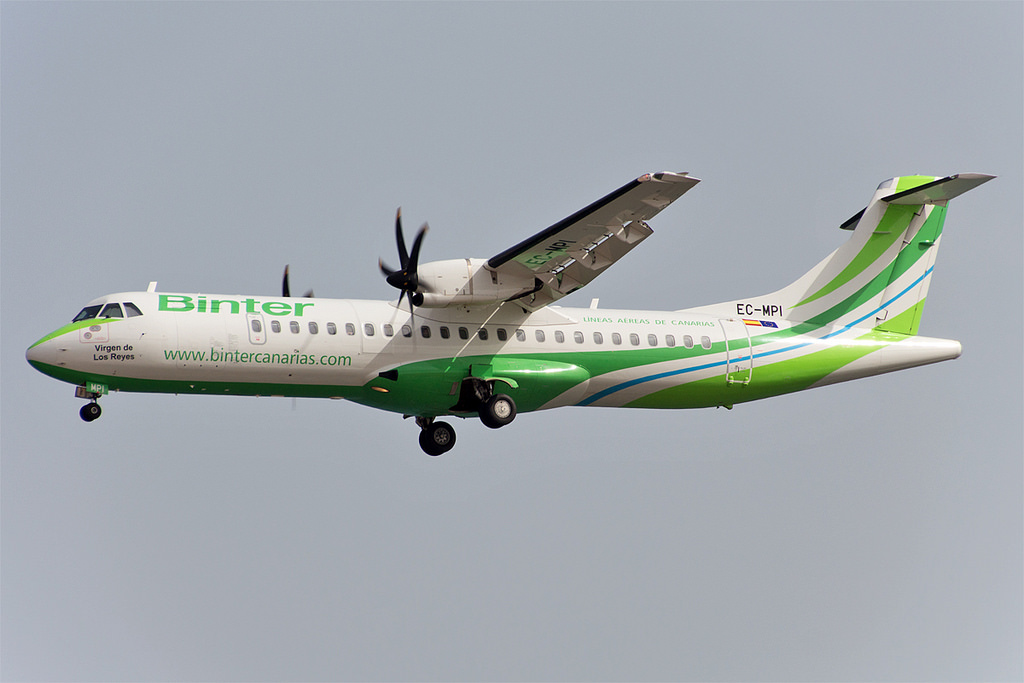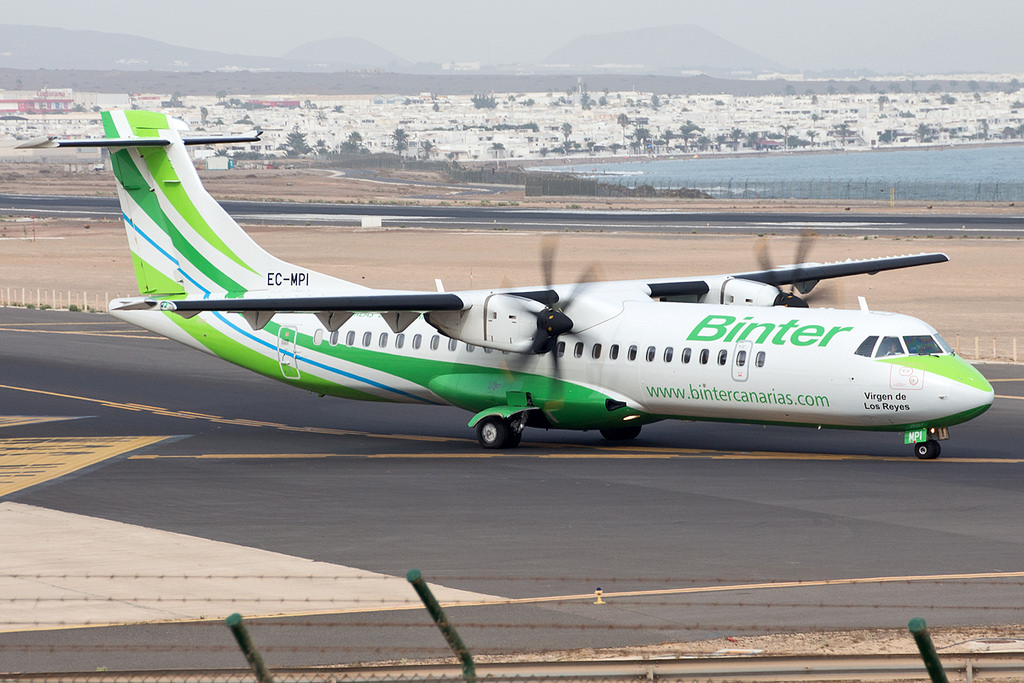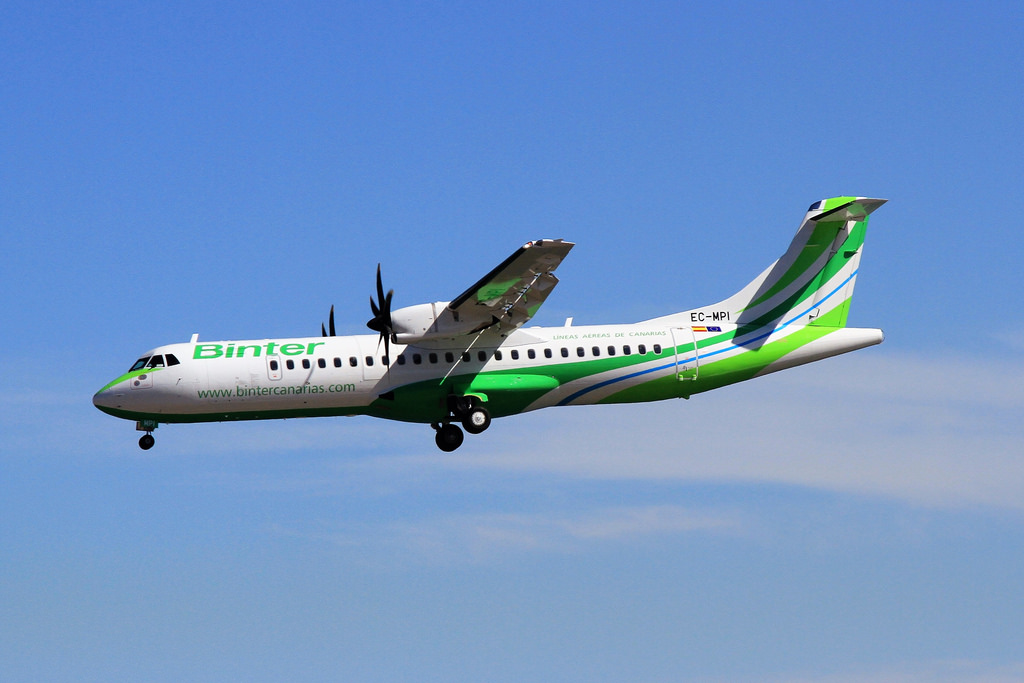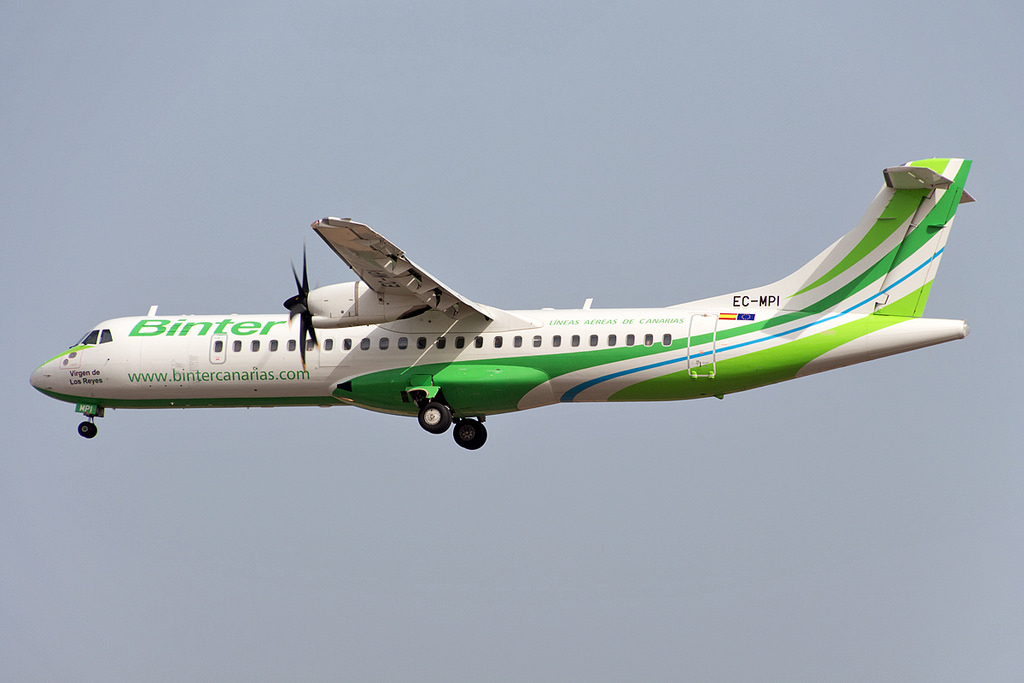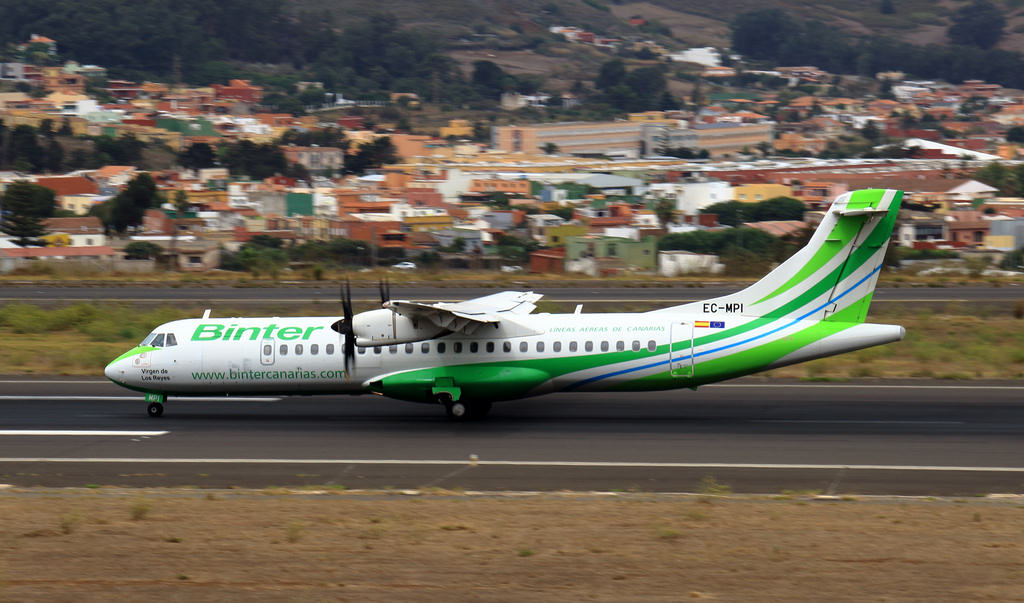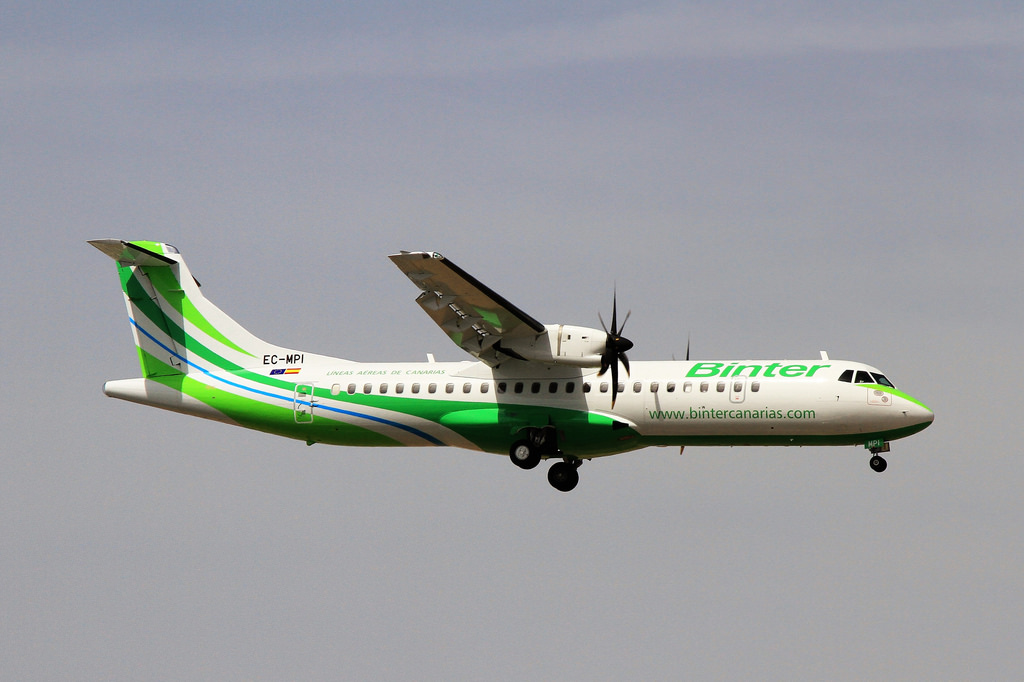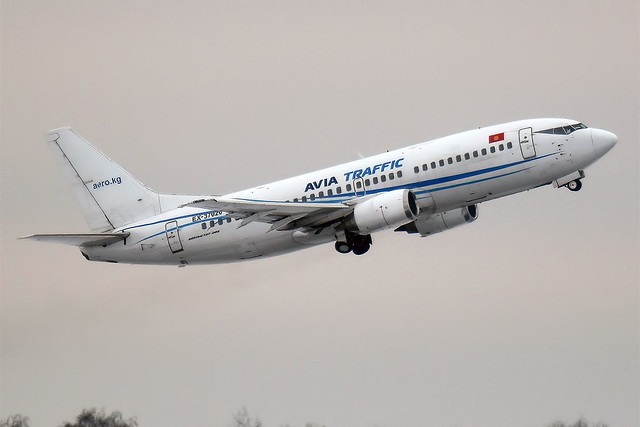Canarias AT72 at Tenerife on Oct 15th 2019, rejected takeoff due to engine failure, fuselage damage
Last Update: October 9, 2020 / 20:49:32 GMT/Zulu time
Incident Facts
Date of incident
Oct 15, 2019
Classification
Incident
Airline
Canarias Airlines
Flight number
NT-112
Departure
Tenerife Norte, Spain
Destination
Las Palmas, Spain
Aircraft Registration
EC-MPI
Aircraft Type
ATR ATR-72-200
ICAO Type Designator
AT72
Spain's CIAIAC reported the aircraft was close to rotation when the crew heard a strange noise, felt vibrations and saw abnormal right hand engine indciations and decided to reject takeoff. The engine failure caused damage to the fuselage, engine debris was found on the runway. There were no injuries, the damage to the aircraft is being determined, the occurrence was rated a serious incident so far.
On Oct 9th 2020 the CIAIAC released their final report concluding the probable cause of the incident was:
The investigation has determined that the engine distress that forced the crew to abort the takeoff was caused by the fatigue fracture of a blade in the second stage of the power turbine (PT2), followed by the overload fracture of several more blades.
The CIAIAC analysed:
In this case, the crew were able to abort the takeoff maneuver since the aircraft had not yet reached its rotation speed, which allowed the crew to brake and exit the runway without further incident. The crew reacted quickly and in accordance with the procedures and training they had received from the company.
They also quickly reported the incident to ATC, which promptly gave them the information needed to vacate the runway without any risks.
The question remains of why the information on the cockpit voice recorder was lost, since of the four tracks provided by the operator to the investigation team, none had valid information on it.
There was no clear determination as to whether the data were lost because the crew did not follow the procedure when opening the relevant breaker, or whether the data were lost when downloaded and processed after the fact by the operator’s technical services.
As for the cause of the engine distress, given all the previous cases presented, it seems that the problem is well known to both the European Aviation Safety Agency (EASA) and the Spanish National Aviation Safety Agency (AESA), as well as to the manufacturer.
AESA is conducting a study of the fatigue failure of power turbine blades in the PW100 family of engines (specifically, the PW127 engine), and the flight safety offices are gathering information from national operators on the implementation of EASA Directive CF-2013-02 in their organizations, on the blades installed in the turbines of their engines, and on the frequency of hot-zone inspections and overhauls.
For its part, the manufacturer has been improving the design and continues to work to design a PT2 blade with a different geometry and a new coating for the leading edge, which it plans to have ready in 2021.
Having identified certain environments, such as those that are prone to corrosion, salinity or general contamination, where the likelihood of turbine blade wear is higher, it would be advisable for Pratt & Whitney Canada to not only offer the option to have a specific plan to ensure operators of their continuing airworthiness, but also to contact each of them and directly create a plan that is tailored to their needs.
As for the specific event of concern in this report, it should be noted that Service Bulletin 21917, published in November 2017 and whose latest revision (#7) is from March 2019, specifies replacing the blades with PN 3124654-01 with blades with PN 3134564. This is because the protective layer on the leading edge of the blades proposed in the previous service bulletin, 21876, is not ideal to increasing the resistance of the blades to corrosion problems.
This change affected engine ED-1404, which experienced a PT2 blade fracture d, but on the date of the event, said bulletin had not been implemented since the bulletin did not give a specific deadline, instead recommending that it be done when the engine is removed and accessible.
The analysis of the fractured blades that were recovered concluded that the material had no existing faults and that only one of them had fatigue problems, with the remaining blades fracturing as a result of the failure of the first blade.
Incident Facts
Date of incident
Oct 15, 2019
Classification
Incident
Airline
Canarias Airlines
Flight number
NT-112
Departure
Tenerife Norte, Spain
Destination
Las Palmas, Spain
Aircraft Registration
EC-MPI
Aircraft Type
ATR ATR-72-200
ICAO Type Designator
AT72
This article is published under license from Avherald.com. © of text by Avherald.com.
Article source
You can read 2 more free articles without a subscription.
Subscribe now and continue reading without any limits!
Read unlimited articles and receive our daily update briefing. Gain better insights into what is happening in commercial aviation safety.
Send tip
Support AeroInside by sending a small tip amount.
Related articles
Binter AT72 at Tenerife on Dec 6th 2017, near collision with private aircraft
A Binter Canarias Avions de Transport Regional ATR-72-212A, registration EC-MPI performing flight NT-631 from Tenerife North,CI to Santa Cruz de La…
Newest articles
JSX E145 at Houston on May 3rd 2024, gear collapse and runway excursion on landing
A JSX Embraer ERJ-145, registration N942JX performing flight XE-284 from Dallas Love,TX to Houston Hobby,TX (USA) with 21 passengers and 3 crew on…
Avia Kyrgyzstan B733 at Bishkek on May 4th 2024, bird strike
An Avia Traffic Company Kyrgyzstan Boeing 737-300 on behalf of Tez Jet Airlines, registration EX-37020 performing flight K9-117 from Bishkek to Osh…
Subscribe today
Are you researching aviation incidents? Get access to AeroInside Insights, unlimited read access and receive the daily newsletter.
Pick your plan and subscribePartner

A new way to document and demonstrate airworthiness compliance and aircraft value. Find out more.

ELITE Simulation Solutions is a leading global provider of Flight Simulation Training Devices, IFR training software as well as flight controls and related services. Find out more.

Your regulation partner, specialists in aviation safety and compliance; providing training, auditing, and consultancy services. Find out more.
AeroInside Blog
Popular aircraft
Airbus A320Boeing 737-800
Boeing 737-800 MAX
Popular airlines
American AirlinesUnited
Delta
Air Canada
Lufthansa
British Airways
